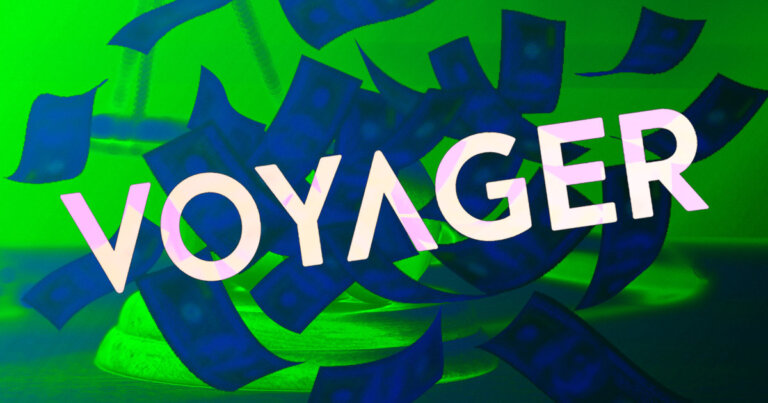 Voyager settles with FTC for $1.65B while CFTC charges former CEO with fraud
Voyager settles with FTC for $1.65B while CFTC charges former CEO with fraud Voyager settles with FTC for $1.65B while CFTC charges former CEO with fraud
Ex-Voyager CEO Steven Ehrlich faces charges from both agencies.

Cover art/illustration via CryptoSlate. Image includes combined content which may include AI-generated content.
The U.S. Federal Trade Commission (FTC) announced on Oct. 12 that it has settled with the failed crypto lending company Voyager Digital.
The FTC complained that Voyager falsely advertised U.S. dollar holdings as FDIC-insured, promised customers that their deposits were held safely, and offered incentives for converting crypto to USDC. However, Voyager’s customers collectively lost access to $1 billion of cryptocurrency when the company filed for bankruptcy in 2022.
The settlement will see Voyager and its affiliates banned from offering and advertising various consumer financial services. Voyager will pay a settlement of $1.65 billion after it pays creditors that are owed compensation in its bankruptcy case.
The FTC additionally filed charges against former Voyager’s co-founder and former CEO, Steven Ehrlich, while also naming his wife, Francine Ehrlich, as a relief defendant. Elhrich has not agreed to settle; the matter will proceed in court.
CEO charged separately by CFTC
The CFTC separately charged Ehrlich with fraud, registration failures, and operation of an unregistered commodities pool on Oct. 12.
CFTC Director of Enforcement Ian McGinley connected the allegations to Voyager’s earlier collapse and bankruptcy in mid-2022, stating:
“Ehrlich and Voyager lied to Voyager customers … they took shockingly reckless risks with their customers’ assets, leading to Voyager’s bankruptcy and huge customer losses. When their business began to collapse, they continued lying to their customers, concealing Voyager’s true financial health.”
In its account of events, the CFTC said that Ehrlich and his company falsely advertised Voyager as a “safe haven” for crypto deposits and advertised returns as high as 12% on some assets. But in reality, it said, Ehrlich and Voyager loaned billions of dollars of customer deposits to third-party companies to generate customer revenue.
Voyager’s decision to engage in those loans means the company acted as a commodity pool operator without CFTC registration. The CFTC added that Ehrlich did not register as an associated person of this pool despite soliciting participants.
The CFTC noted that a third party — referred to only as “Firm A” in the statement — defaulted on a loan when Voyager attempted to recover it. That outcome led Voyager to file for bankruptcy in July 2022.
Ehrlich has denied the allegations:
“The government’s filed claims leave me both outraged and deeply dismayed. The talented management team at Voyager created and maintained our platform in full compliance with the existing regulatory structure. Our team consistently communicated and worked closely with our regulators. I am profoundly upset by the losses suffered by Voyager’s customers and creditors due to the conduct of others in the crypto industry. I am currently reviewing the government’s claims, but it is clear I am being used as a scapegoat for the bad actions of others. I look forward to vindication in court.”
The regulator said it seeks to impose several fines on Ehrlich, including restitution, disgorgement, and civil monetary penalties. It also aims to restrict his activities by imposing permanent trading and registration bans and injunctions to prevent Ehrlich from violating specific commodities regulations.


























































